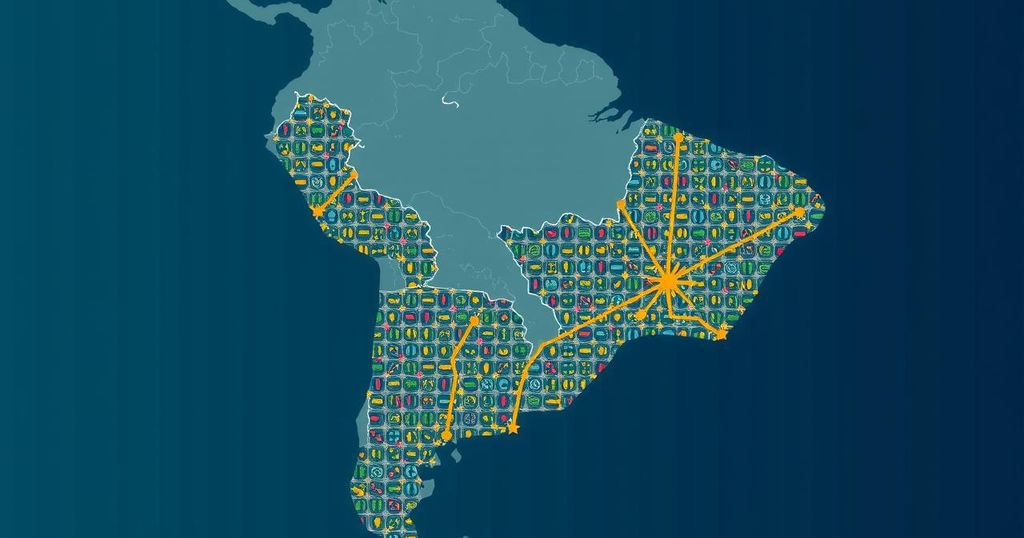This article discusses the economic crises in Bolivia and Venezuela, highlighting their reliance on natural resources, political instability, and the need for reforms. Bolivia is facing declining natural gas production, while Venezuela suffers from a catastrophic economic collapse due to oil dependency. Both nations serve as cautionary tales for South America in the pursuit of resilience and sustainable economic development.
South America is currently facing significant economic challenges, as evidenced by the crises in Bolivia and Venezuela. Both nations, rich in resources, exemplify the vulnerabilities associated with over-dependence on natural resources for economic stability. Bolivia, once a model of resource-led development, is grappling with a declining natural gas sector due to previous underinvestment. Concurrently, Venezuela’s reliance on oil has led to an economic disaster marked by catastrophic inflation and widespread poverty.
In Bolivia, the decline in natural gas production, down nearly 40% from its peak by 2023, has severely impacted government revenue, trade balance, and foreign reserves. Efforts by President Luis Arce to stabilize the economy are hindered by internal political strife and social unrest stemming from rising inflation and shortages of basic goods.
On the other hand, Venezuela presents a grim scenario of economic collapse resulting from years of corruption and over-reliance on oil exports. The fall in oil prices starting in 2014, intensified by U.S. sanctions, has catapulted the nation into an era of hyperinflation and widespread emigration.
While Bolivia attempts to attract foreign investment and diversify its economy amid political turmoil, Venezuela’s leadership chooses authoritarian measures, seeking to maintain power rather than addressing the economic crisis.
In analyzing the economic crises of these two nations, it becomes clear that South America must heed their experiences. The importance of diversifying economies, combating corruption, and establishing political stability cannot be overstated. The futures of South American nations will hinge on whether comprehensive reforms are implemented to foster resilience against external economic shocks and promote sustainable growth.
This article examines the ongoing economic crises in South America, particularly through the lens of Bolivia and Venezuela. These two nations serve as notable case studies of the consequences of over-reliance on natural resources and the detrimental effects of political mismanagement. Their situations reflect broader issues prevalent in the region, such as economic vulnerability and the need for sustainable development. Both countries have generated significant revenue from natural resources but are struggling to adapt to market fluctuations and internal strife.
The crises in Bolivia and Venezuela are instructive for South America, showcasing the dangers tied to dependence on specific resources and the critical role of effective governance. Both countries’ attempts at economic recovery underline the necessity for diversification and structural reforms. The future of other South American nations depends on learning from these examples to implement necessary changes that can fortify their economies against similar vulnerabilities and instabilities.
Original Source: www.firstpost.com






